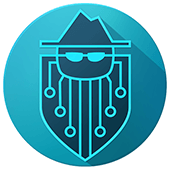Turkey Just Banned Wikipedia
In a move intended to protect “national security and public order,” a court in Ankara, Turkey blocked web access to Wikipedia today. The court ruling follows an initial block by The Information and Communication Technologies Authority (BTK) in Turkey, tucked into an otherwise unrelated provisional administration measure.
Apart from citing concerns of national security, the country has not given an official reason for blocking the website. However, a state run agency did admit to asking Wikipedia on numerous occasions to remove content linking Turkey to a group founded on a terror group. (They never removed such content.)
This blatant act of censorship is not a first for Turkey, especially not in recent history. The country’s government banned a whole slew of web services in 2016 -- among them Google Drive, iCloud, and a number of other sites providing cloud based storage.
Turkey began banning web content following an attempted military coup in July of last year, which spurred a nationalist agenda on the part of Turkey’s government. Ever since, Turkey’s leadership has been vigilant in ridding anti-Turkey sentiment from the country; by the looks of it, their method for doing so has been attacking the source of such sentiment -- or rather, as close as they can get to it without attacking themselves: the internet.
Acts like these draw concerns to free speech -- concerns that span far beyond the internet. When a government begins denying the presence of anything within the body it rules over (even if it is only something that is felt or thought, such as a sentiment or belief), then questions arise as to what the government can’t deny, restrict, or remove altogether.
Because internet access is still something that can be revoked or regulated, it is currently a go-to for various governments (among them Turkey, Russia, and Afghanistan) hoping to filter undesirable knowledge out of countries and political territories. At present, it generally requires more resources to rid a nation of something physical such as books and other print publications (although pre-internet, the print market was indeed the primary target of censorship), than it does the bottomless library that is the web.
While online censorship is technically speaking an ineffective way to limit access to the web (due to the prevalence of private browsers utilizing virtual private networks (VPNs) to navigate people to the internet), it is still in practice an effective way of limiting the public’s access to web content. A very limited number of people are aware of the capabilities of private browsing, and those who can access such alternatives to web browsing are often educated and belong to the world’s middle to upper class. That leaves the majority of people not without the tools they need to access the web, but without the knowledge necessary to access those tools.
Wikipedia is among the first online locales most students of all income brackets visit when doing homework. In Turkey, this resource is no longer available.
Online censorship may limit people’s knowledge of political unrest within a nation, but it will also limit their knowledge, period.
To browse freely and without restrictions, consider downloading a free private browser with VPN capabilities. Better yet, download one that you can take with you on your Android device, such as Tenta. And spread the knowledge -- share Tenta with those who might not find it on their own.
Share this postInstall Tenta Browser Free!
Start protecting your online privacy today with Tenta Browser.



